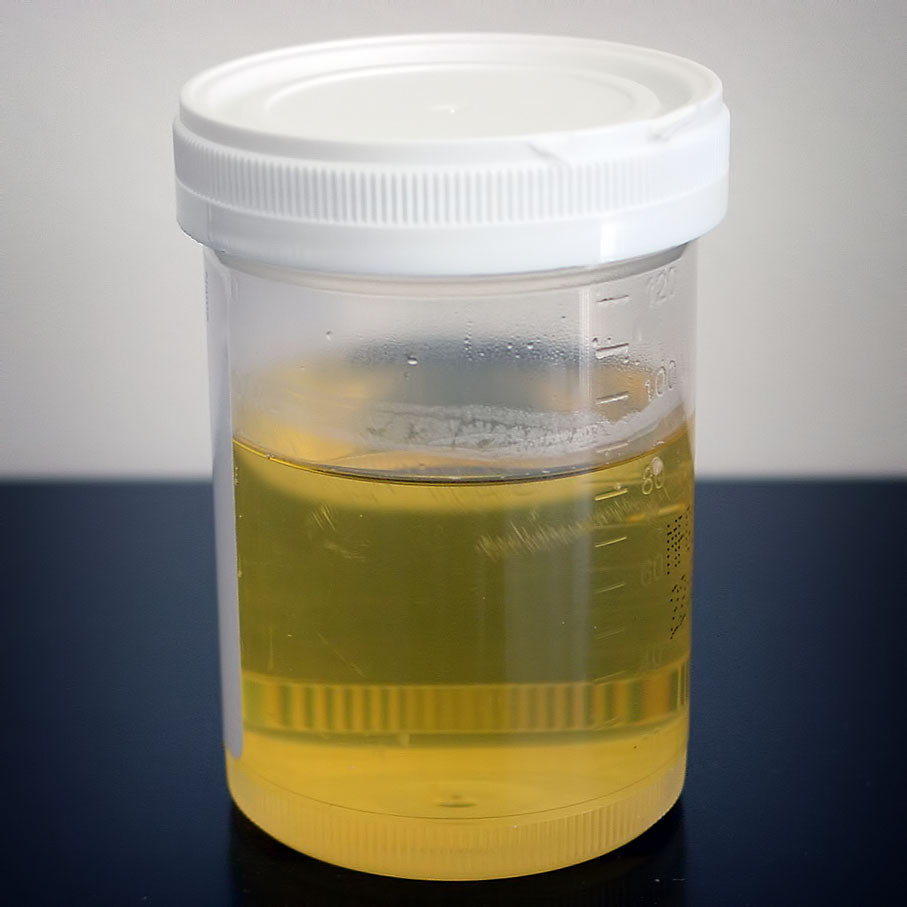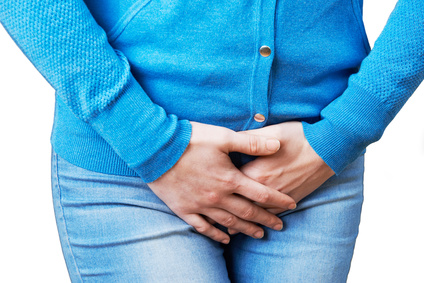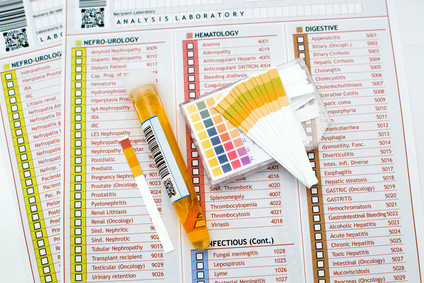Dark Urine (Yellow) and Brown Urine Color Causes and Tests
Yellow Urine Color
Although urine is straw yellow in color, the shades can vary without being due to any abnormality or disease process. Urine is a collection of water, waste products and excess compounds in the body. It’s characteristic color is due mainly to the presence of urobilins (urochrome).
These urobilins are a group of related compounds that are formed during the breakdown of red blood cells, particularly hemoglobin. Although most of these compounds are passed out with the bile into the gut and then expelled with the feces, some of urobilinogen is broken down by intestinal bacteria to form urobilins which are reabsorbed and then excreted in the urine.
Dark Yellow Urine
A darker yellow colored urine is often seen when a person is exposed to hot weather and does not drink sufficient fluids. In an attempt to conserve the body’s fluids during dehydration, the kidney reabsorbs water in the kidney thereby concentrating it. In these instances, the urine may appear a more mustard or amber yellow in color.
However, it may also indicate a problem with bile secretion if the darker colored urine is accompanied by pale stools. Dark urine, however, that is bordering on brown in color is abnormal. Although the urine is darker yellow in color, it should be clear or translucent. Murky urine is due to various other causes like pus or mucus in the urine and is discussed further under cloudy urine.

Causes of Dark Urine
Certain medication, supplements, foods and beverages may cause a dark urine. The color of the urine should restore to normal once these compounds are removed from the body and not reintroduced into the system.
- Senna in laxatives
- Excessive consumption of B-complex vitamins
- Drugs like phenazopyridine, methyldopa and statins
- Food colorants (dyes)
- Strenuous exercise
- Dehydration – hot weather, after excessive alcohol consumption
Although dark colored urine is a known side effect of certain drugs, it should still be investigated by a doctor to exclude adverse drug reactions or other underlying conditions.
Pathological causes of dark urine includes :
- Liver diseases like hepatitis and cirrrhosis
- Obstructive jaundice
- Bile duct stones
- Hemolytic anemia
- Paroxysmal nocturnal hemoglobinuria (rare) may cause dark urine in the morning upon waking
- Pancreas diseases
- Kidney diseases
- Kidney stones
- Urinary tract infection
- Mild hematuria (blood in urine)
- Copper poisoning
- Rhabdomyolysis
Other signs and symptoms, even if unrelated to the kidneys and urinary tract, may be an indication of a pathological cause of dark urine.
Brown Urine Color
Brown urine is not a normal variation in the color or urine. Urine that is brown in color may be a consequence of one of the causes of dark yellow urine or red urine progressing further. However, there are certain unique causes of brown colored urine that also needs to be considered. Brown urine may vary from light brown to dark brown, or even shades of brown that is bordering on black and described as tea-colored, coffee-colored or cola-colored urine.

The consistency of the urine may also change and it may have a murky appearance, the causes of which are discussed further under cloudy urine. A brown discoloration of the urine may be due to metabolites or colorants within certain foods, beverages, drugs or supplements. A common pathological cause is hematuria (blood in the urine) and though it is expected to stain the urine pink or red, in many cases of hematuria the urine appears light to dark brown. This is often due to the compounds of red blood cell breakdown like free hemoglobin and fragmented red blood cells.
Myoglobin may cause a brownish discoloration of the urine. Hematuria may at times present with brownish-black specks in the urine, similar to coffee grounds. In some cases, like with a melanoma, the natural pigment melanin is passed out in the urine which has a brown color. Less commonly, the presence of feces in the urine (fecaluria) may cause the urine to appear brown in color although this is more likely to present with brown specks in the urine. Fecaluria arises when a fistula develops between the bladder and colon or rectum.
Causes of Brown Colored Urine
As with any change in urine color, non-pathological causes need to be considered which includes :
- Foods and beverages – rhubarb, aloe, rhubarb, beets, blackberries
- Drugs – levodopa, chloraquine, primaquine, furazolidone, metronidazole, nitrofurantoin, methocarbamol
- Herbal supplements – cascara, senna
- Reactions with chemicals and detergents in the toilet bowl water
- Strenuous exercise (march hematuria)
Pathological causes of a brown urine include :
- Liver diseases – viral hepatitis, cirrhosis
- Infections – blackwater fever (malaria complication), yellow fever, leptospirosis
- Trauma (kidneys)
- Glomerulonephritis
- Iron toxicity
- Hematuria, painless hematuria
- Melanoma
- Porphyria
- Tyrosinosis
Given some of the infectious conditions that may cause brown urine, it is important to consider recent travel to foreign destinations as a risk factor. This is particularly important if a person suffering with brown urine has recently traveled to Africa or certain parts of South, Southeast and East Asia. Excessive use of nutritional and herbal supplements can be considered as another risk. These products are available over-the-counter and often labeled as ‘natural’ but is not necessarily without side effects.

Symptoms with Brown Urine
Brown urine, whether light colored or dark, is a symptom of some underlying disease. Depending on the causative disease, there may be several other symptoms. However, most causes of brown urine are not related to the lower urinary tract (bladder and urethra). Many of the expected urinary symptoms would not be present. Therefore symptoms that may accompany brown urine can vary significantly depending on the cause. There may be :
- Abdominal pain
- Flank pain
- Fever
- Malaise
- Fatigue
- Changes in skin color or eye color
- Changes in appetite
- Weight loss
Tests for Diagnosis
Various tests may be conducted to identify the cause of brown urine. Firstly a clinical examination, assessment of symptoms reported and medical history will help the doctor isolate some conditions that may be responsible. These conditions are referred to as the differential diagnosis. Then specific tests may be conducted based on this differential diagnosis.
The most likely tests will include :
- Urine dipstick
- Urinalysis which is urine collection for cytology (microscopic examination) and culture (growing any microbes in the urine sample.
- Urea and electrolytes
- Other blood tests like complete blood count (CBC).

Treatment of Brown Urine
There is no specific treatment for brown urine on its own as it is just a symptom of some disease. It needs to be investigated further by a doctor and treatment will be commenced for the causative condition once diagnosed. Simple measures may be helpful for many of the conditions that can cause brown urine. This includes :
- Strict bed rest.
- Drink plenty of fluids.
- Eat well – balanced meals without preservatives and spices.
- Avoid any sexual contact.
- Discontinue all nutritional supplements and herbal remedies.
- Do not use any medication without a doctor’s supervision. Chronic medication should be continued though until advised otherwise by a doctor.
Patient’s need to be aware that a wait and watch approach without any medical attention is dangerous. Simply following the measures above and drinking additional water will not “flush” out the problem. Medical attention is necessary. The consequences of some of the causative conditions of brown urine can be life threatening. Even if the symptoms appear to be easing, it still needs to be assessed by a medical doctor.
Last updated on September 17, 2018.



